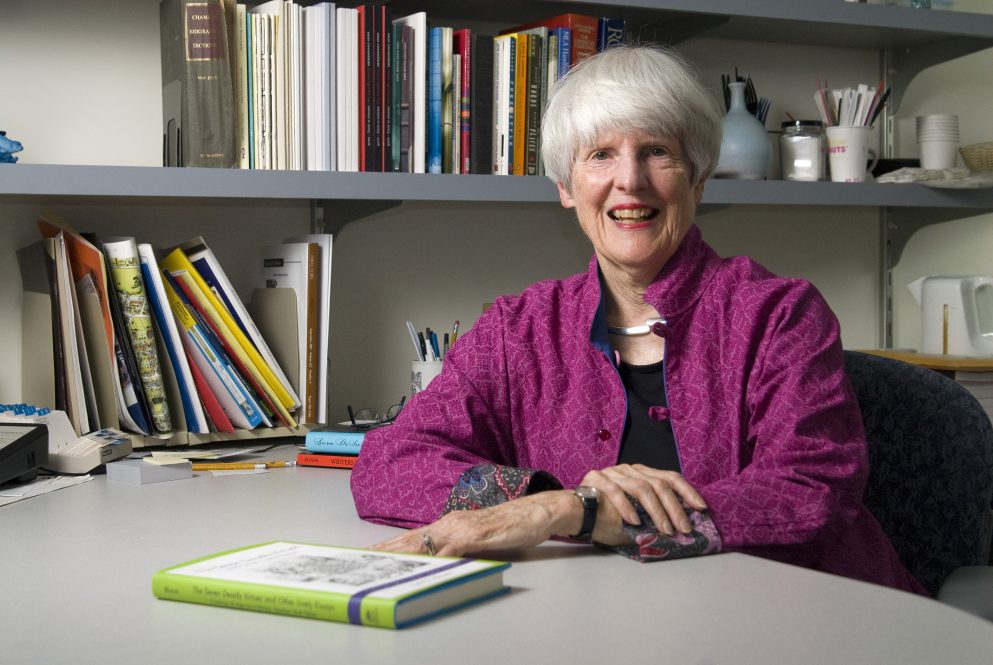Passed down through generations, written on index cards, posted to the web at the bottom of a meandering story about a blogger’s family hike — a recipe is much more than a step-by-step guide to creating a delectable dish.
Lynn Z. Bloom, Board of Trustees Distinguished Professor and Aetna Chair of Writing emerita, unwraps all the symbolism in something so ostensibly simple in her latest book, “Recipe,” part of the Bloomsbury Publishing “Object Lessons” series in which writers explore “the hidden lives of ordinary things.”
A fan of the “top-flight” series of “short, quirky, unusual” books, Bloom challenged herself to write a proposal that would be accepted in the highly selective series. “I’ve always liked to cook, everybody likes to eat, everybody in my family cooks, it’s fun to do,” she says. “So I thought I would write a proposal based on unusual ways to look at the process of how most home cooks do what they do.”
She was thrilled to learn her pitch was accepted as the pandemic and lockdowns took hold and people the world over ramped up their home cooking, spawning terms like procrastibaking. “This was the perfect thing to write where I could not think of disease, death, or disaster,” says Bloom. “I wanted it to be a happy book.”
Bloom taught at UConn from 1988 to 2015. She’s written more than 25 books, including an in-depth biography of famed child-rearing expert Dr. Benjamin Spock, who taught her about precision: “If you don’t write clearly, someone could die.” This book, she says, is perhaps the most universal.



